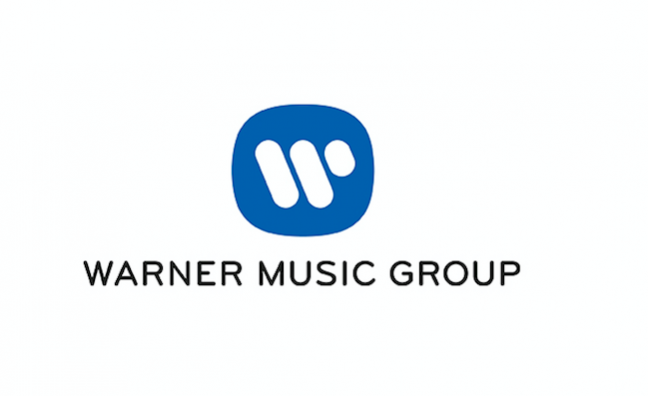Warner Music Group has announced its results for its second quarter – with a light release schedule and the coronavirus crisis contributing to a flat revenue performance.
Total revenues $1.071 billion were 1.7% down compared to Q2 2019, although they were almost flat in constant currency terms. However, digital revenues continued to grow, up 5.7% to $699 million, or 7.4% in constant currency terms. Digital represented 65.3% of total revenues.
“We had a tough comparison with an especially strong Q2 in 2019, so I’m pleased that we’ve matched our excellent performance in the prior-year quarter,” said WMG CEO Steve Cooper.
Cooper credited an 11% increase in recorded music streaming revenue and a 17% increase in music publishing digital revenue with boosting performance.
“That’s a tremendous achievement, especially coming on the heels of Q1, when we achieved the highest quarterly revenue in our 16-year history as a standalone company,” Cooper added. “In these unprecedented times, we’re determined to protect the livelihoods of our artists, our songwriters and our people. We’re confident that our distinctive combination of creative innovation and financial discipline will help us weather this storm and emerge stronger, better and more agile than ever.”
Warner cited Ed Sheeran, Tones And I, Lizzo and Roddy Ricch as its biggest-sellers over the period.
The company said growth in recorded music digital revenue and music publishing digital, sync and mechanical revenue was offset by declines in physical sales, artist services and expanded-rights revenue on the recorded music side, and performance revenue in publishing.
Warner said some “Covid-related business disruption” (the company’s Q2 included the early stages of lockdown in the UK and the US, and larger impacts around the world) and the “one-time impact of a digital streaming licence in the prior year quarter” contributed to the decline.
During the earnings call, Cooper said streaming subscriptions have been "strong and healthy" during the pandemic. He suggested that WMG's increasing proportion of digital revenues offered some protection for the company.
"It makes us more resilient in a crisis such as this," he said, noting that digital revenue was not materially affected during the quarter.
But Cooper acknowledged the potential disruption to the company and its plans, including the major's proposed IPO. The board and management will continue to monitor the situation.
"There may also be some shifts in our release plans due to changes in recording and songwriting schedules," said Cooper.
Operating loss was $49m compared to operating income of $122m the year before. Operating income before depreciation and amortisation (OIBDA) plunged 93.7% to $12m, down from $191m in the prior year. OIBDA margin was down 16.4 percentage points to 1.1% from 17.5%. The company said the decrease in operating income, OIBDA and OIBDA margin was “primarily the result of higher variable compensation expense of $164 million related to the company's long-term incentive plan, as well as the margin impact of Covid-related business disruption and one-time non-cash charges of $13 million, partially offset by revenue mix”.
Adjusted OIBDA decreased 78.4% to $43 million and adjusted OIBDA margin decreased 14.3 percentage points to 4.0% from 18.3%, due to higher variable compensation expense and the impact of COVID-related business disruption, partially offset by revenue mix.
The company posted a net loss of $74m compared to net income of $67m. Adjusted net loss was $43 million compared to adjusted net income of $75 million in the prior-year quarter. Warner said this was due to “the operating loss in the quarter, losses on investments compared to a gain in the prior-year quarter and lower other income associated with the gain on the company's Euro-denominated debt and intercompany loans due to foreign exchange rates, partially offset by a tax benefit in the quarter due to lower pre-tax income”.
Adjusted earnings before interest, tax, depreciation and amortisation (EBITDA) for the 12 months ended March 31, 2020 were $755 million compared to $1.097bn for the comparable prior-year period. The 2019 EBITDA figures benefitted from a net pre-tax gain of $389m from the sale of Warner’s Spotify shares. Excluding the impact of the Spotify share sale gain, adjusted EBITDA would have increased $47m to $755m, due to increases in underlying operating performance, largely driven by the growth in streaming.
In recorded music, revenue was down 2.8% or 1.5% in constant currency terms. Tour postponements due to the coronavirus contributed to lower merch sales, while physical sales were also hit.
Music publishing revenue grew 5.1% or 7.8% at constant currency.
“For the rest of the fiscal year, we’re focused on delivering robust results and managing our costs carefully,” added Eric Levin, Warner Music Group’s EVP and CFO. “Our cash position is robust, and our goal now is to come out the other side of the COVID-19 pandemic stronger than ever.”
Music Week will have more news from Warner’s earnings call later today.












